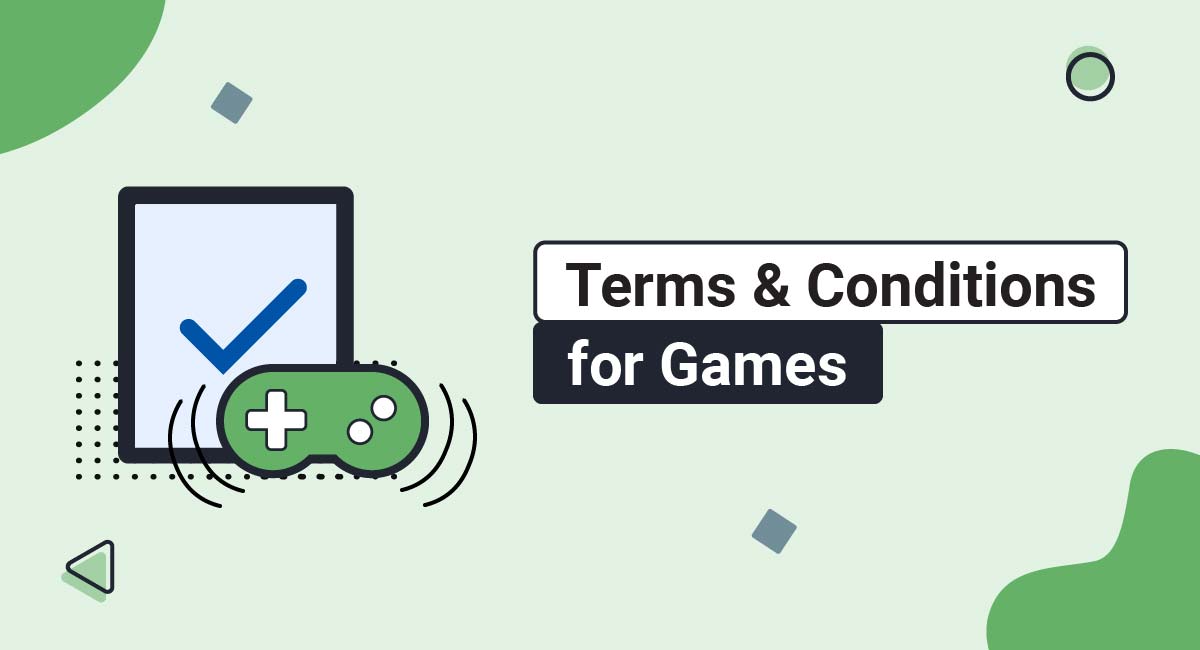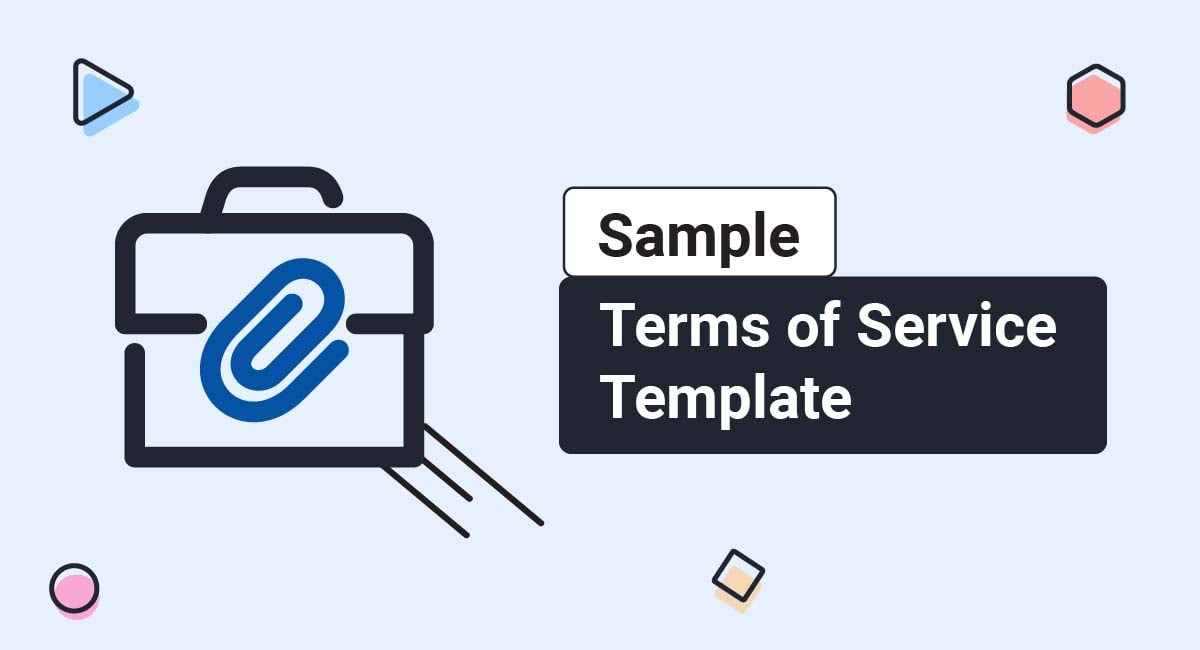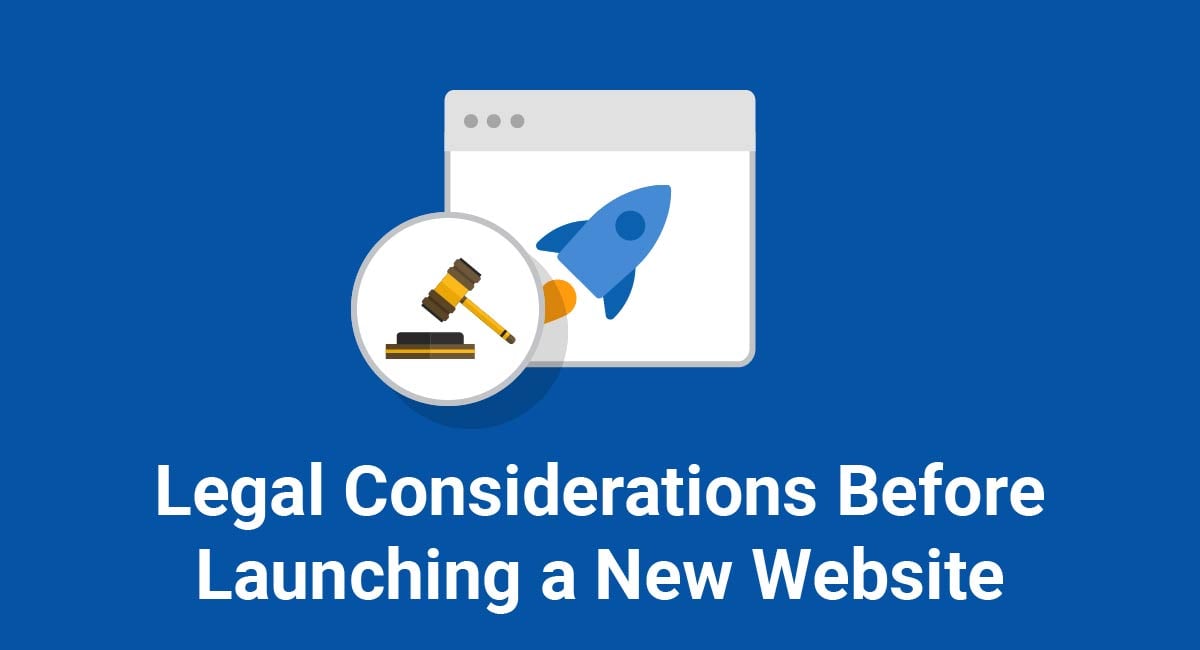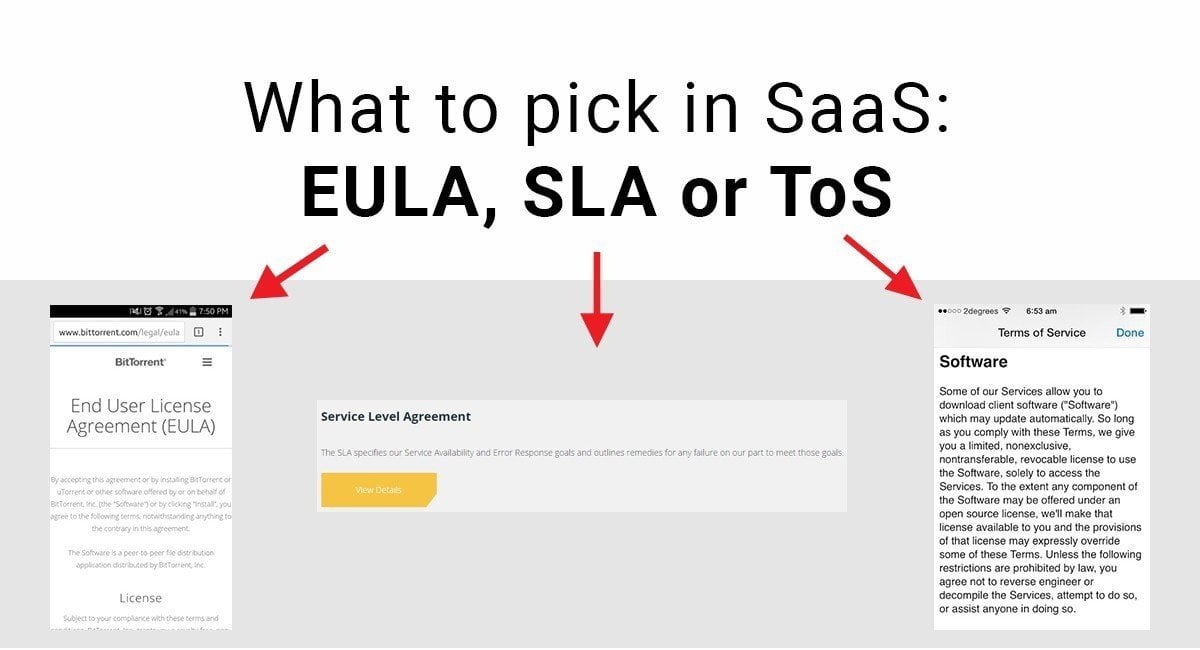Like websites and mobile apps, games can also greatly benefit from having a Terms & Conditions (T&C) agreement. In fact, you should not distribute your games without one.
This article will address why you need Terms & Conditions, also known as Terms of Use or Terms of Service, for your games and the essential clauses you should include in this legal agreement.
Our Terms and Conditions Generator makes it easy to create a Terms and Conditions agreement for your business. Just follow these steps:
-
At Step 1, select the Website option or the App option or both.
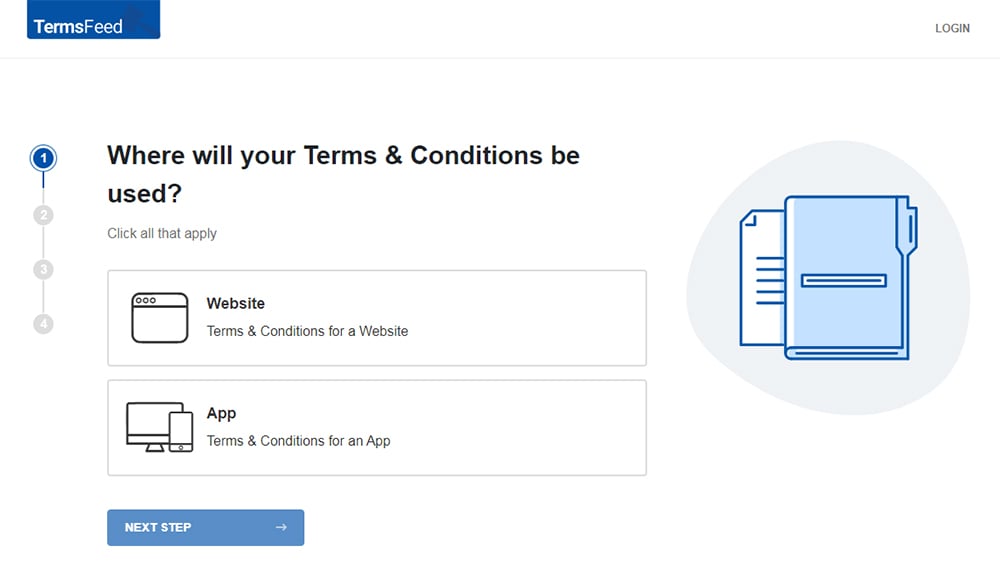
-
Answer some questions about your website or app.
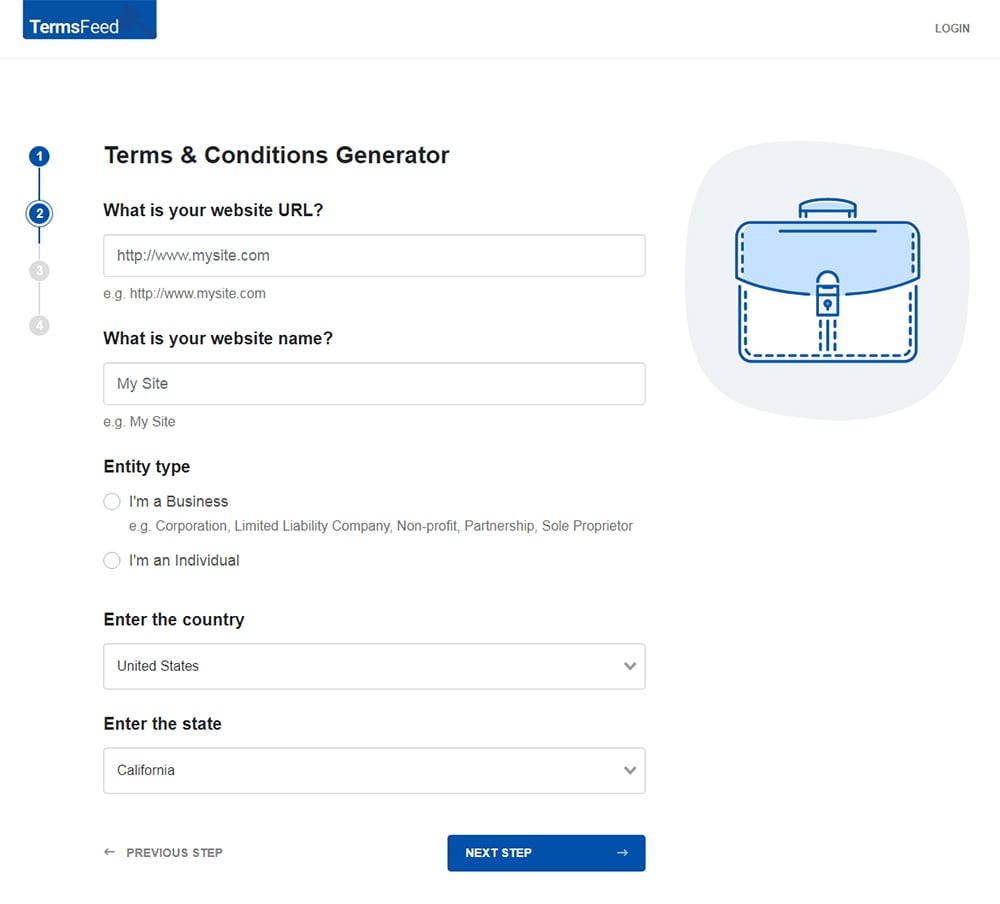
-
Answer some questions about your business.
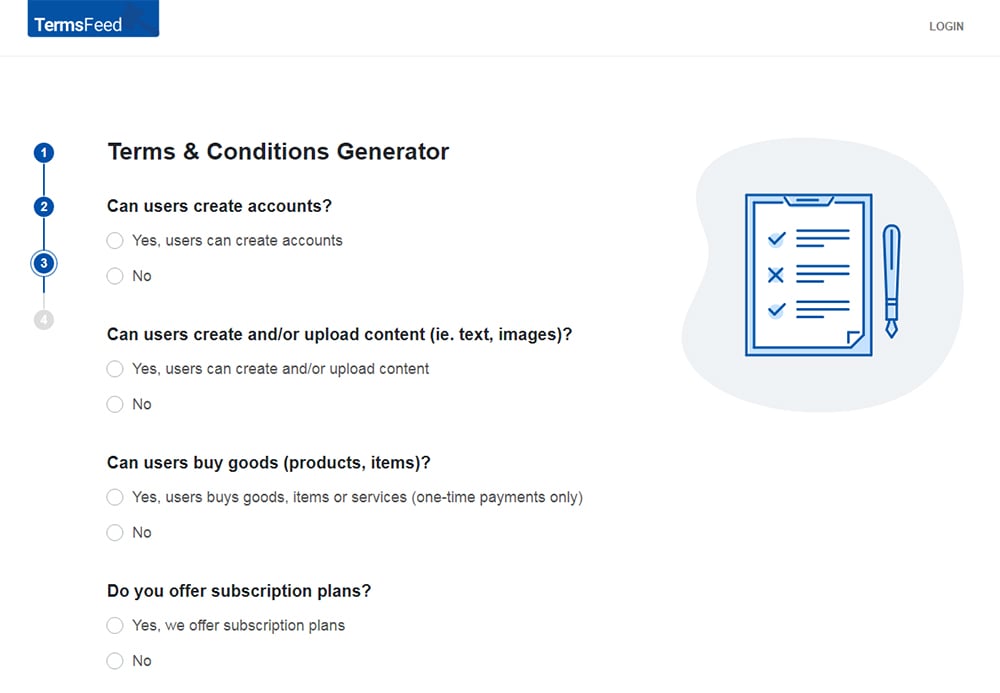
-
Enter the email address where you'd like the T&C delivered and click "Generate."
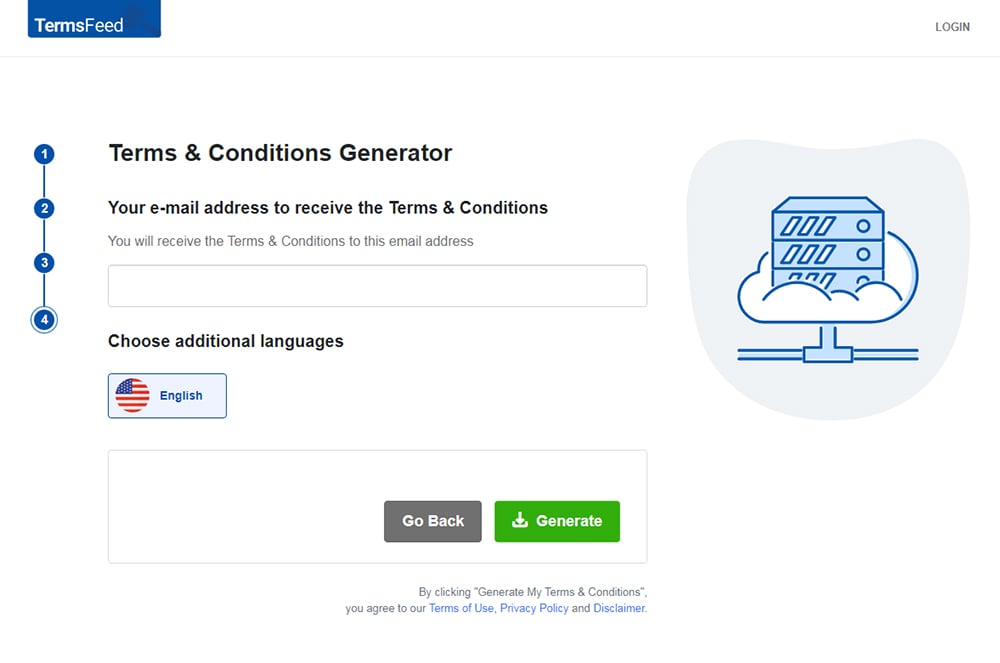
You'll be able to instantly access and download the Terms & Conditions agreement.
- 1. Are You Legally Required to Have a Terms and Conditions Agreement for Games?
- 2. Why Do Games Need Terms & Conditions Agreements?
- 3. Does My Game Need a Separate Terms and Conditions Agreement?
- 4. What Clauses Should Your Terms & Conditions for Games Include?
- 4.1. Acceptance of Your Terms
- 4.2. Account Creation
- 4.3. COPPA Provisions
- 4.4. Licensing Terms
- 4.5. Allowed Uses & Restrictions
- 4.6. Billing
- 4.7. In-App Purchases
- 4.8. Account Suspension/Termination
- 4.9. Privacy
- 4.10. User-Generated Content
- 4.11. DMCA
- 4.12. Liability and Warranty Disclaimers
- 4.13. Third Parties
- 4.14. Updates and Changes to the Terms
- 4.15. Governing Law
- 4.16. Contact Information
- 5. How to Display and Get Agreement to Your Terms and Conditions for Games
- 6. Summary
Are You Legally Required to Have a Terms and Conditions Agreement for Games?
No, Terms and Conditions agreements are not legal requirements. However, they are very important to the success of your business and every game should have one before being distributed to the public.
Why Do Games Need Terms & Conditions Agreements?
A Terms & Conditions agreement dictates the rules, restrictions, obligations, and responsibilities while playing your game. Without one, you are losing a lot of control over your game, and your legal rights.
A Terms & Conditions agreement can include:
- Standards of behavior if your game allows for users to interact with other users
- Payment terms if you charge for the game
- Liability disclaimers that may arise from playing your game
- Many other useful clauses
Does My Game Need a Separate Terms and Conditions Agreement?
Whether you maintain a general Terms & Conditions agreement or separate agreements for different games depends on how different your games are from one another.
For example, if one of your games is made only for adults over 18 but another one targets children under 13, you're likely better off writing separate Terms & Conditions agreements.
However, if the differences between your games are very subtle, e.g. one game is a subscription service and the other is free with in-app purchases, you can cover both in one Terms & Conditions agreement.
What Clauses Should Your Terms & Conditions for Games Include?
The following clauses are not unique from other types of Terms & Conditions agreements but they are important to the success of your game. Without these provisions in your agreement, you could be exposing your business to unnecessary liability.
Acceptance of Your Terms
The Terms & Conditions for your game won't help your business much if there's no way to assure acceptance of its terms.
Browsewrap and clickwrap are common ways of assuring acceptance but you can also dictate the terms of acceptance in your agreement.
There are different approaches to this.
Fingersoft explains that acceptance of its terms occurs when a user downloads one of its games:
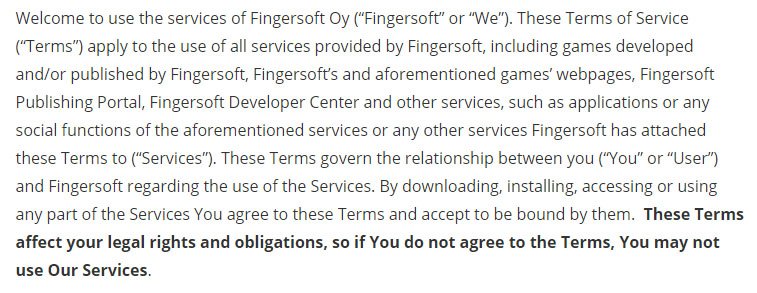
Roblox is a platform for creating games. In its Terms of Service agreement, the "Acceptance of Terms" occurs not only when a game is used or downloaded but also by merely visiting its website:

In the case of Niantic Labs and Pokemon Go, "Acceptance of Terms" occurs when the game is used. There's no indication that downloading the game is enough to show agreement and in fact, it instructs users to avoid playing the game if they don't agree to the company's terms:

Your decision on when to consider your Terms & Conditions to be accepted depends on when you see the possibility of liability arising.
Account Creation
Many games require the creation of an account in order to play or access certain features of the game.
Pokemon GO, for example, requires a Google account or Trainer account if the user wants to save their play progress at the stop point.
Scopely develops games that are available on both mobile and PC platforms.
The clause on account creation in the Terms & Conditions agreement of Scopely is brief in that a user "may" have to register an account but it's focused on who's authorized to do so:

Other companies offer more detail in their "Account Creation" clauses.
Roblox explains that failing to create an account limits the features of the game. This way, users can make an informed decision before they share information required for creating an account:

COPPA Provisions
The Child Online Privacy Protection Act (COPPA) requires that you collect information and interact with children differently than you would with adult users. Unless you have a way to keep your game completely age-restricted, you must address this issue.
Pokemon GO has widespread appeal to children and adults alike. As a result, it contains a very detailed description about children under 13 and the use of the game.
Parents must also register before their children can play the game, and the Terms & Conditions of the Pokemon GO game explains this:
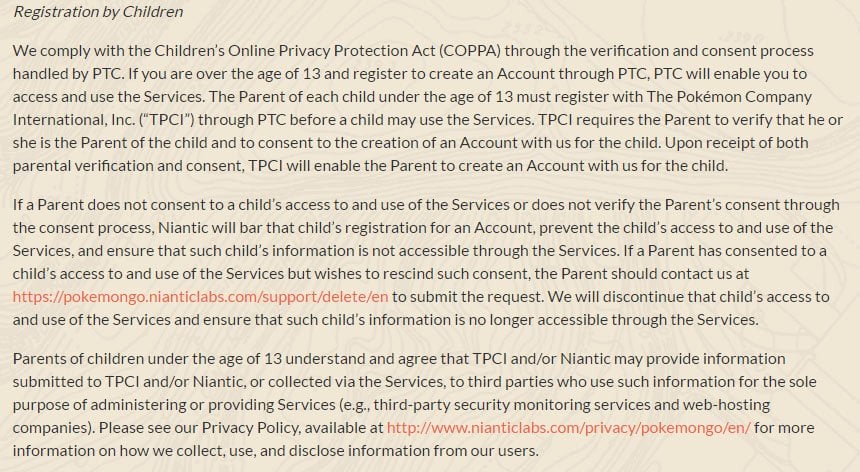
In contrast to Pokemon Go, Niantic Labs' other popular game, Ingress, is not targeted to children under 13.
The Terms & Conditions of Ingress offers a COPPA provision that's limiting. The agreement suggests the game is primarily for older children and adults:

Halfbrick Studios creates another popular game called Fruit Ninja. Even though the game is appropriate for young children, it does not take the same detailed approach as Pokemon GO. It appears to assume its game is limited to children over 13:

Licensing Terms
Many games offer users a license that allows users to play the game within the allowed uses and restrictions.
Since most mobile games rely on some cloud resources owned by the game developer, a "use" license is more appropriate than an EULA.
The only exception is if a game is purchased and downloaded on a PC or mobile device, then you're unlikely to see a Terms & Conditions agreement and more likely to find a EULA.
Roblox offers the most detailed license terms. This is likely due to the fact that this is Roblox platform has many functions that users can access. For that reason, Roblox needs to be clear in restrictions against distribution, reverse-engineering, and creating derivative works:

In most cases, the "use" license is fairly broad, like the one given by Halfbrick. The provisions also explain when the license for the game begins and ends:

The agreement from the Ingress game describes the license granted to users similarly to Roblox. Like Roblox it offers the right to download and use the game, but nothing allows a user to create derivative works from it, distribute it to others or reverse-engineer Ingress:

Allowed Uses & Restrictions
Many Terms & Conditions agreements of games focus more on restrictions of users rather than what they are allowed to do. That's likely due to the fact that restrictions do more to control liability and give game developers more leeway when they need to cancel or suspend an account. However, both should be included for the most clarity.
Roblox offers "allowed uses" in its Terms & Conditions agreement. The agreement makes it clear that users are allowed to create in the platform and share ideas:
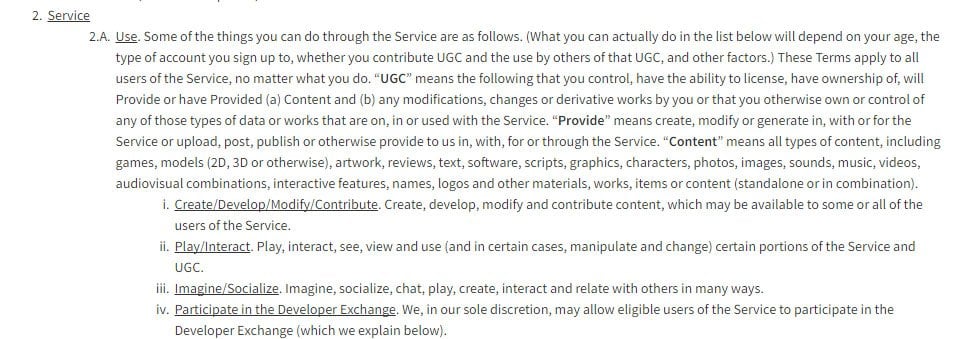
"Restrictions" take a different tone. In many cases, "restriction" clauses focus on behavior, especially if the game involves user interaction.
Pokemon GO offers a long list of restrictions, many of them which focus on user conduct. This example only shows half of the restrictions by Pokemon GO, but it gives you a good idea on how to draft them:
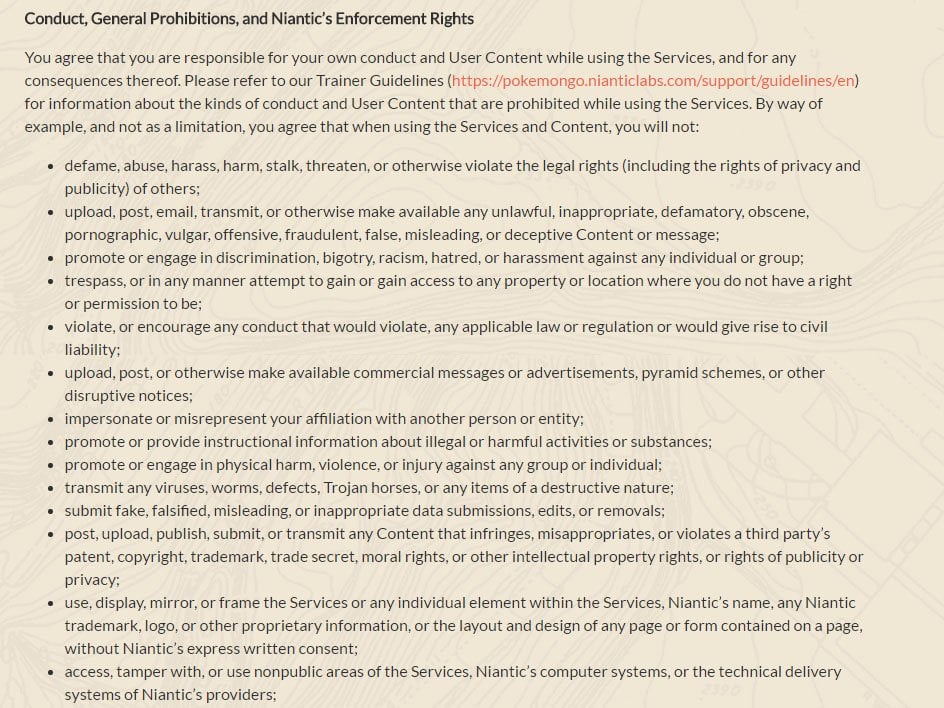
Restriction lists are not always impossibly long. Fingersoft offers similar protections with a much shorter list in its agreement:
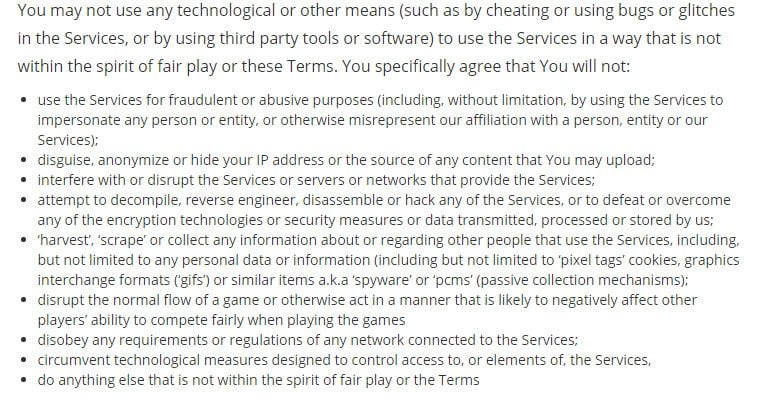
Billing
If your game includes a subscription fee or a purchase price, you can address these terms in a "billing" or "payment terms" section of your agreement.
Take2Games distributes mobile apps through Apple and Android platforms and almost always charges a purchase price. Here's how it discloses this:

Billing terms require different provisions if there's a monthly renewal fee involved for the game.
Roblox discusses in-app purchases and renewal subscriptions in its agreement:
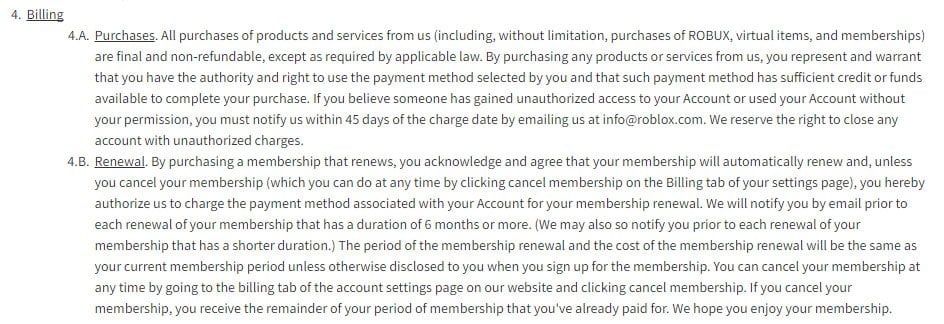
In-App Purchases
Most mobile games do not charge purchase or subscription fees. Instead, they allow enhanced features through in-app purchases. Often referred to as "virtual money" users can buy upgraded items through the game. If your game has anything like this, you should include this in your Terms and Conditions agreement.
Pokemon GO with its virtual store featured in the game is an expert in managing these purchases. It starts a section on in-app purchases in its Terms & Conditions with a detailed account of how virtual money and purchases work:
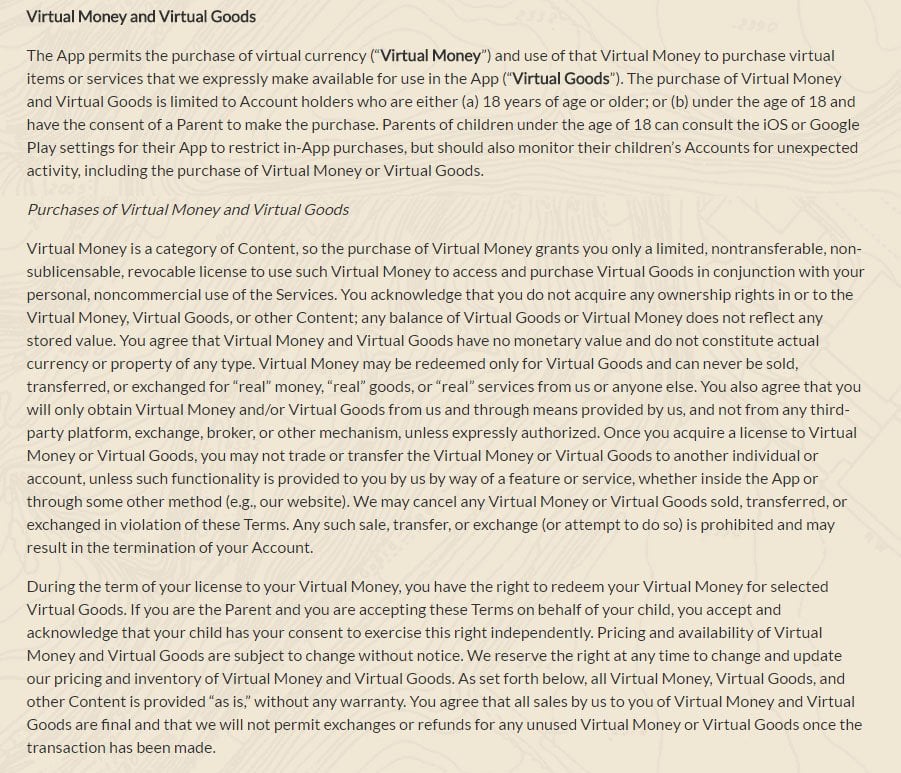
This section also explains how purchases work when completed by those outside the U.S.:

The ends with how virtual money is handled at account termination. In this case, there are no refunds given for any balance left at the time of termination:
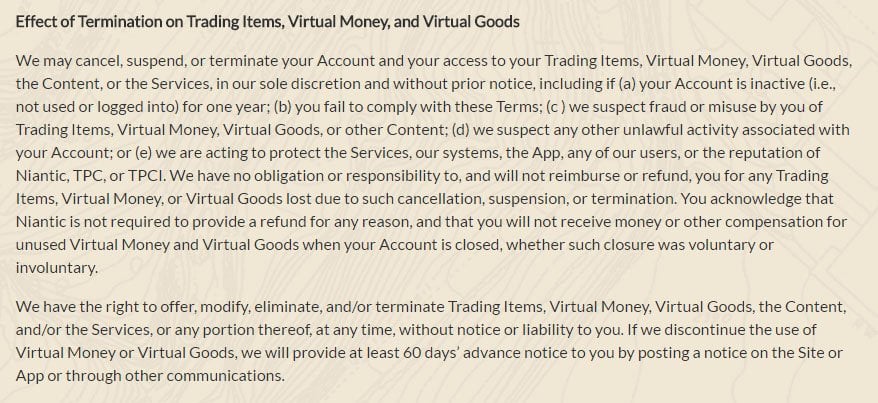
Other agreements of games include sections related to in-app purchases but not as detailed as Pokemon GO. Halfbrick offers a shorter summary of in-app purchases ("Virtual Items"):
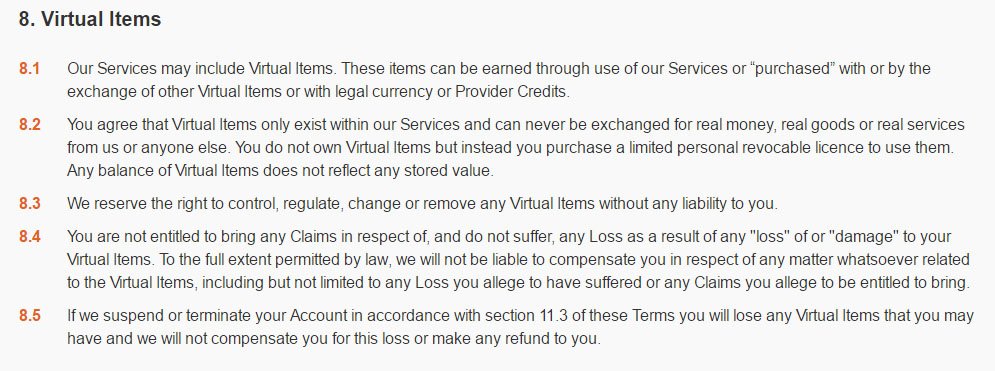
Scopely discusses virtual items but also any fees that could arise in the game:
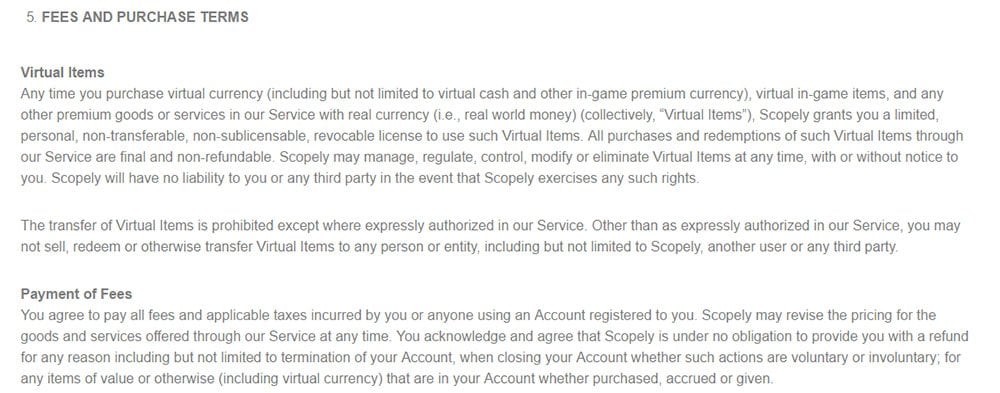
Account Suspension/Termination
You want to address two issues in an "Account termination" section of your Terms & Conditions agreement for the game: One, what can lead to account suspension or termination and two, that you have the right to take this action. It's best to address both at once.
Take2Games prefers being brief and to the point. The clause also informs how users can choose to terminate their accounts:

Ingress offers a termination clause in its agreement that describes why accounts are terminated. It also addresses virtual money and the lack of refunds available:
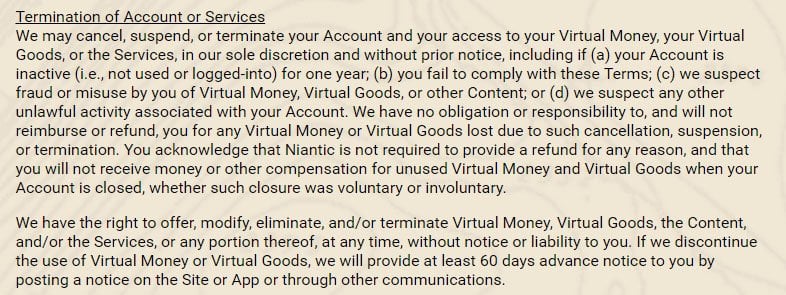
Privacy
The Terms & Conditions agreement is not required to contain privacy provisions and if it does, the provisions serve as a brief summary of the separate Privacy Policy agreement.
In most cases, a reference to the Privacy Policy is enough to incorporate the terms. Pokemon GO adopts that approach:

Fingersoft mentions its Privacy Policy in the Terms & Conditions agreement, but the provision offers a summary:
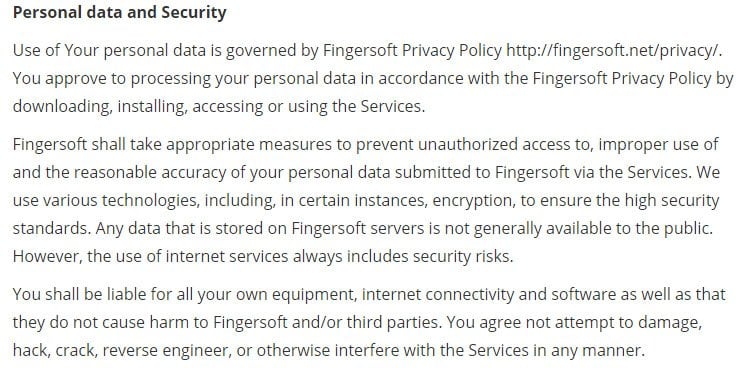
User-Generated Content
This type of clause sets out information about who owns rights to any user-generated content (UGC) and more detailed information about intellectual property rights, copyrights and licensing.
As expected, a game creation platform like Roblox maintains a long section in its Terms & Conditions on user-generated content. It describes copyright and trademark protection while also making it clear that it can use that content to promote its interests.
Roblox does not own the content but it has a license to use it. Users must also confirm that the content belongs to them and that the content is not stolen from another user:
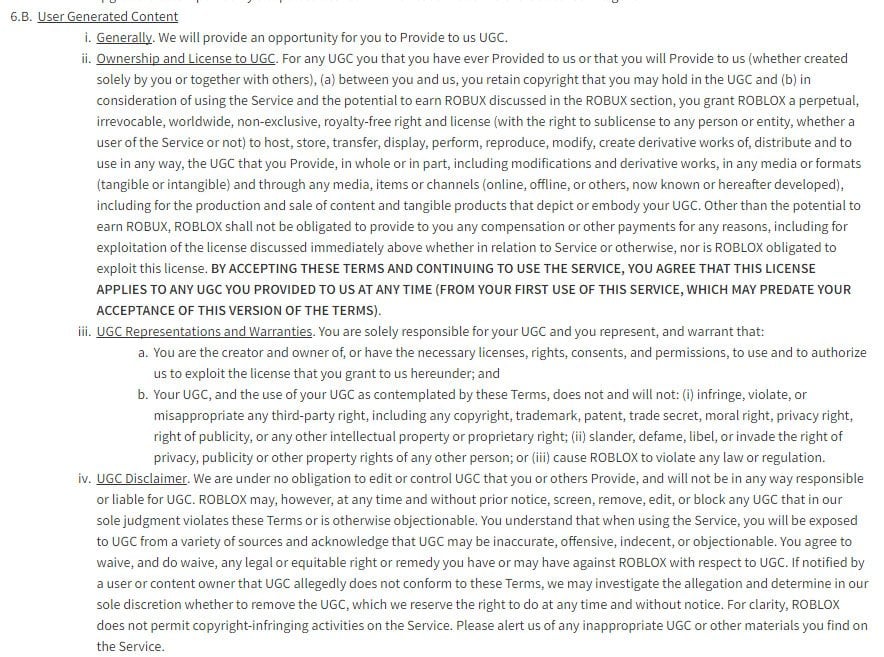
Scopely does not offer many games that encourage user generated content. However, the developers include the provision in case a future product does promote that:

DMCA
The Digital Millennium Copyright Act (DMCA) offers websites and mobile apps protection from infringement liability if they offer a process for third parties to report copyright violations.
This is more of an issue with user-generated content platforms like Roblox. However, some games offer this provision just in case.
Ingress is unlikely to face a DMCA issue, but the agreement of this game includes a short and simple provision anyway:

Roblox is more likely to come across copyright violations or unintentionally support it. Therefore, it offers a detailed description of where to send a notice of any such violations and the information to put in it:
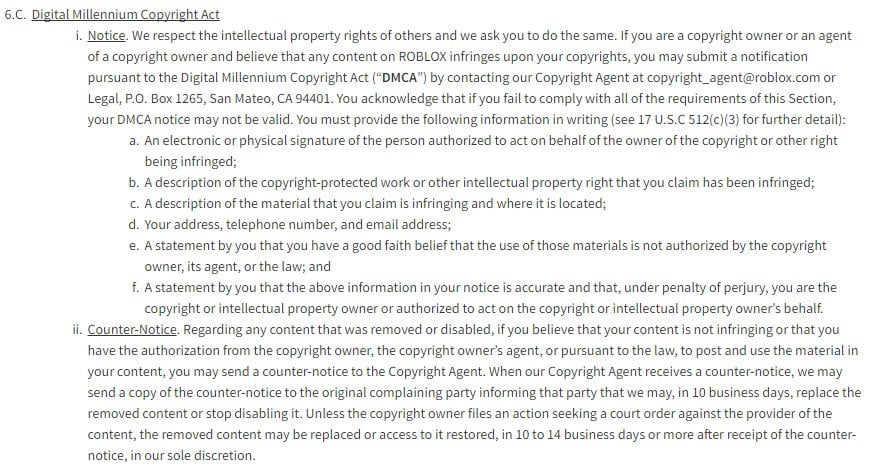
Liability and Warranty Disclaimers
You should have a mixture of specific liability disclaimers and general ones in your Terms & Conditions. These clauses work to protect you legally from any damages, faulty products or other issues with your game that may have people wanting to bring a lawsuit against you.
The Pokemon GO game attracts liability because people can injure themselves while paying too much attention to the game and not enough to where they are going. Trespass was also an issue at the height of the game's popularity.
The Terms & Conditions of the game addresses this specific issue:
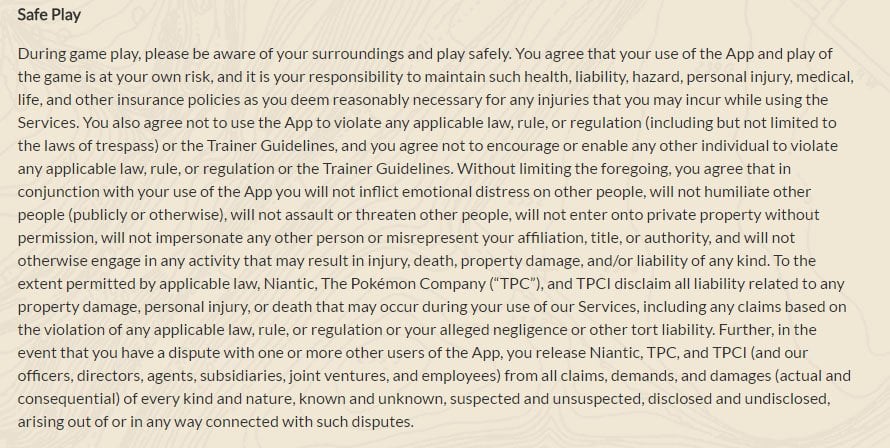
General disclaimers are found in every Terms & Conditions agreement not matter the type of app or game.
Even if you don't believe there's any liability associated with your game, you should include these kind of disclaimers anyway.
Scopely presents these clearly and briefly:
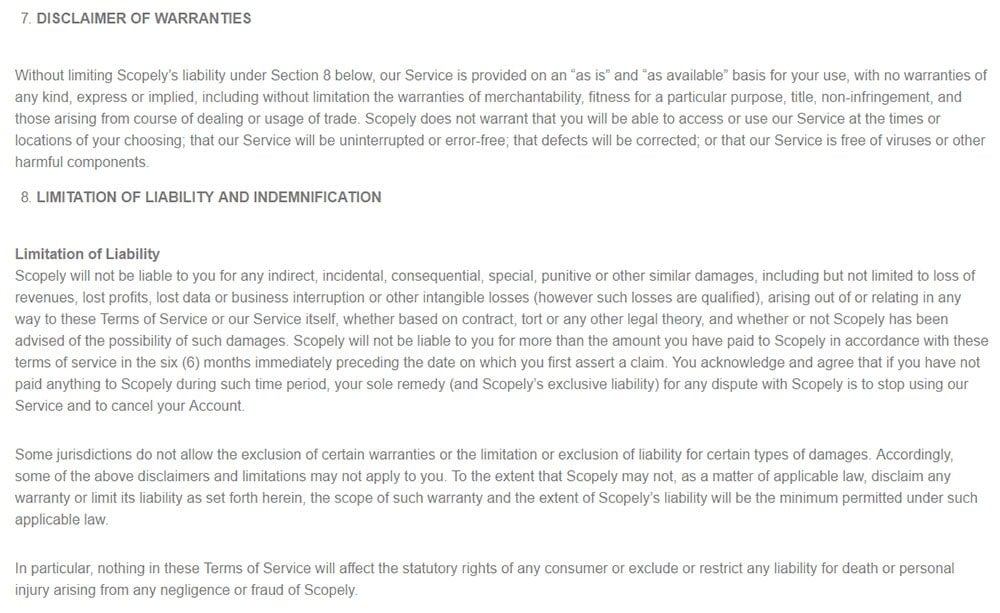
Third Parties
Include a clause that addresses third party content, letting users know that you are not responsible for anything related to that third party.
In its Terms & Conditions agreement from Roblox, the "Third Party Materials" is not responsible for objectionable material and doesn't guarantee that services from third parties are appropriate:

The agreement of the Ingress game takes a similar approach but mainly addresses third party links:

Updates and Changes to the Terms
As your games evolve, you may need to change the Terms & Conditions. Your Terms & Conditions agreement must indicate your right to make changes to the agreement and update it as you need to.
This kind of provision often includes notification procedures too.
Scopely mentions that Scopely is allowed to make changes and explains how users are notified:

Fingersoft offers a different kind of provision. While Fingersoft preserves its right to change the terms, it also indicates that users will need to check periodically for updates:
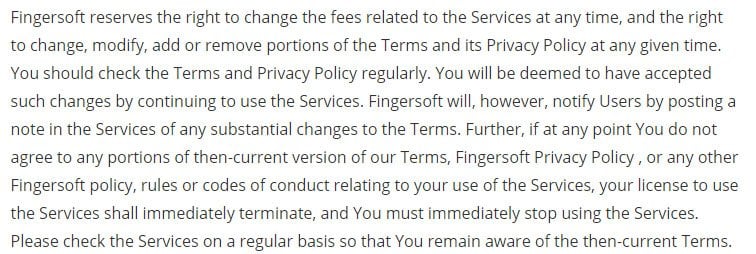
Governing Law
When you include a Governing Law clause in the Terms & Conditions agreement, you're assured that any legal action takes place in a jurisdiction that's familiar and nearby to your business.
Halfbrick limits its "Governing Law" clause to its home base in Queensland, Australia:

Fingersoft takes a similar brief approach:

Contact Information
As a measure of good faith, end your Terms & Conditions agreement with your business contact information.
If you have a specific department for addressing Terms & Conditions and Privacy Policy questions, give users the contact information for this department.
With Pokemon GO, Niantic offers mailing and email addresses. The email address is specifically for Terms of Service questions:

Fingersoft offers the same information but also adds its business identification number:
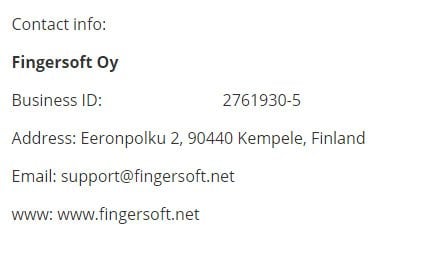
How to Display and Get Agreement to Your Terms and Conditions for Games
Display your Terms and Conditions agreement in your website footer and when users download or install your game. During download/installation is the perfect time to get users to agree too the terms as well.
Use an "I Agree" checkbox to get agreement, as seen here:
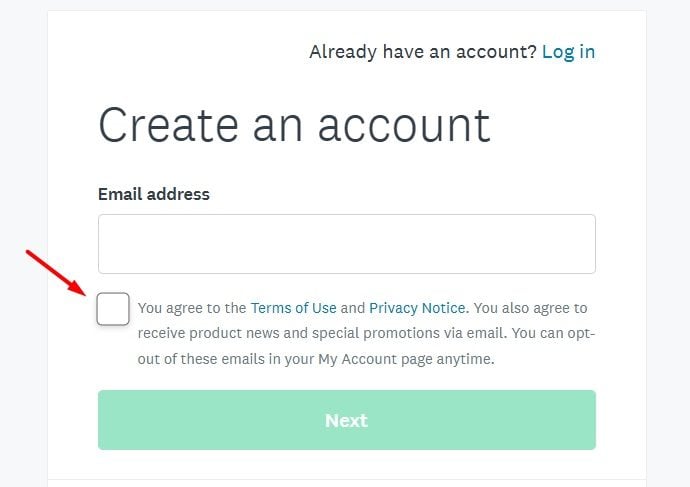
Here's another example:
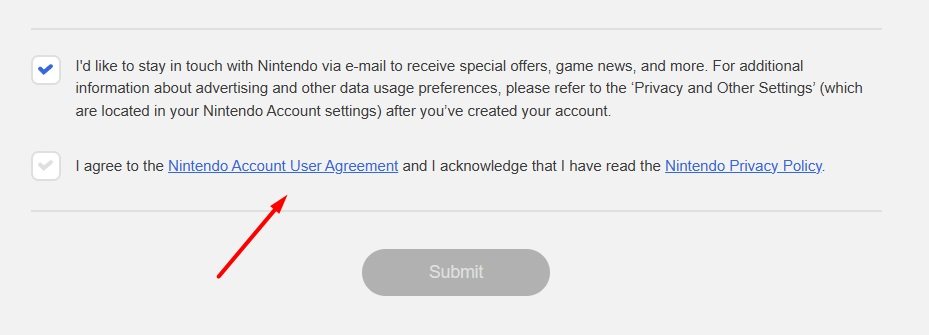
For mobile games, you can use an Agree or Accept button to get agreement, as seen here:
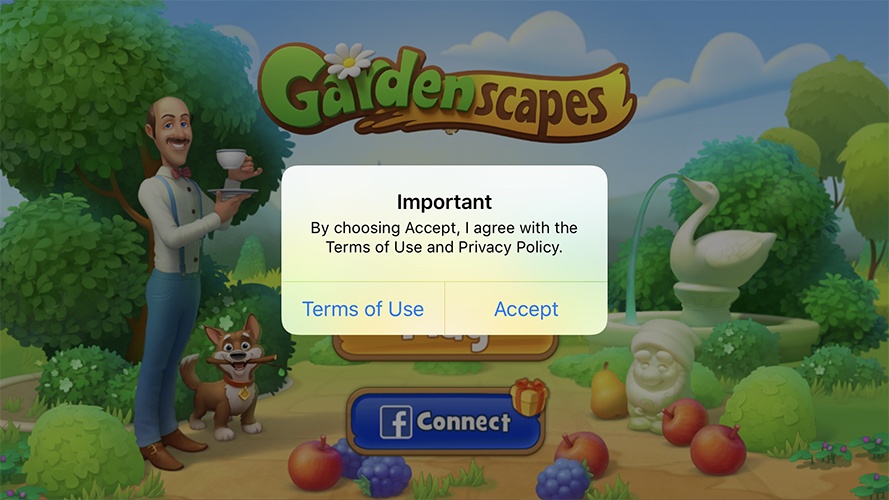
Including your Terms agreement link in your site's footer makes it easy to find from any webpage. Here's an example:

For mobile games, include a link within an in-game menu, such as a Settings or About menu.
Here's an example of an in-app menu showing legal agreement links:
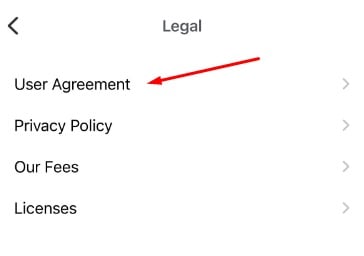
Summary
If you distribute an online game, having a Terms and Conditions agreement with it is crucially important. While not legally required, this important agreement will help you maintain control over your game by limiting your legal liability, settings terms and rules for users to follow, and maintaining your right to ban people from your game.
Your Terms and Conditions agreement can cover key topics like who can use your game, what law governs your agreement, what warranties you disclaim and what liabilities you limit, what rules users must follow when on your game, and how you handle billing and subscription fees.
After you create your Terms and Conditions agreement, display it on your website in the site's footer, and within the game itself in an in-game or in-app menu.
Also display it at the time the user downloads or installs your game, and request they take action to consent to the terms. This can be clicking an Accept or Agree button, or ticking a checkbox next to an Accept or Agree statement.

Comprehensive compliance starts with a Privacy Policy.
Comply with the law with our agreements, policies, and consent banners. Everything is included.
